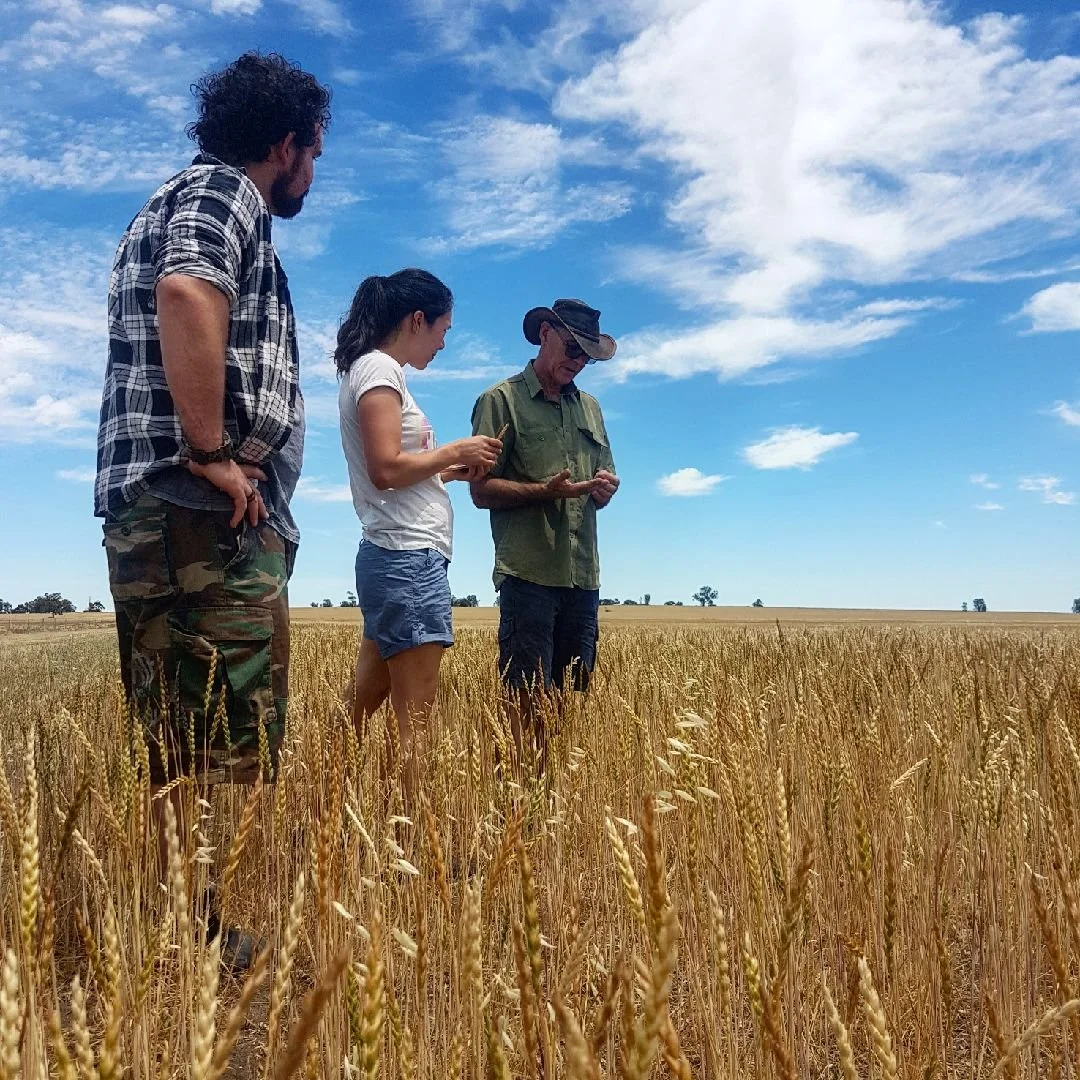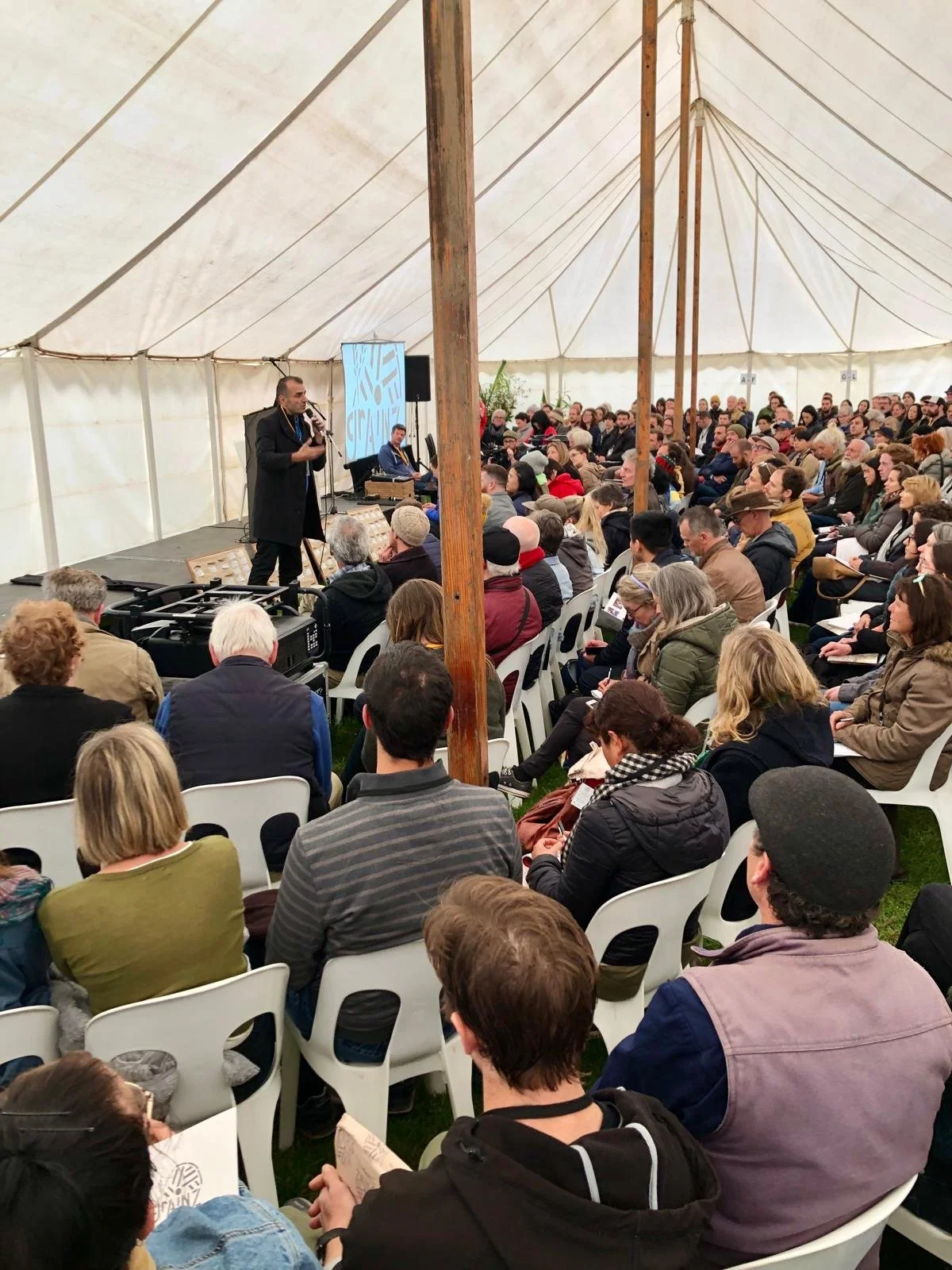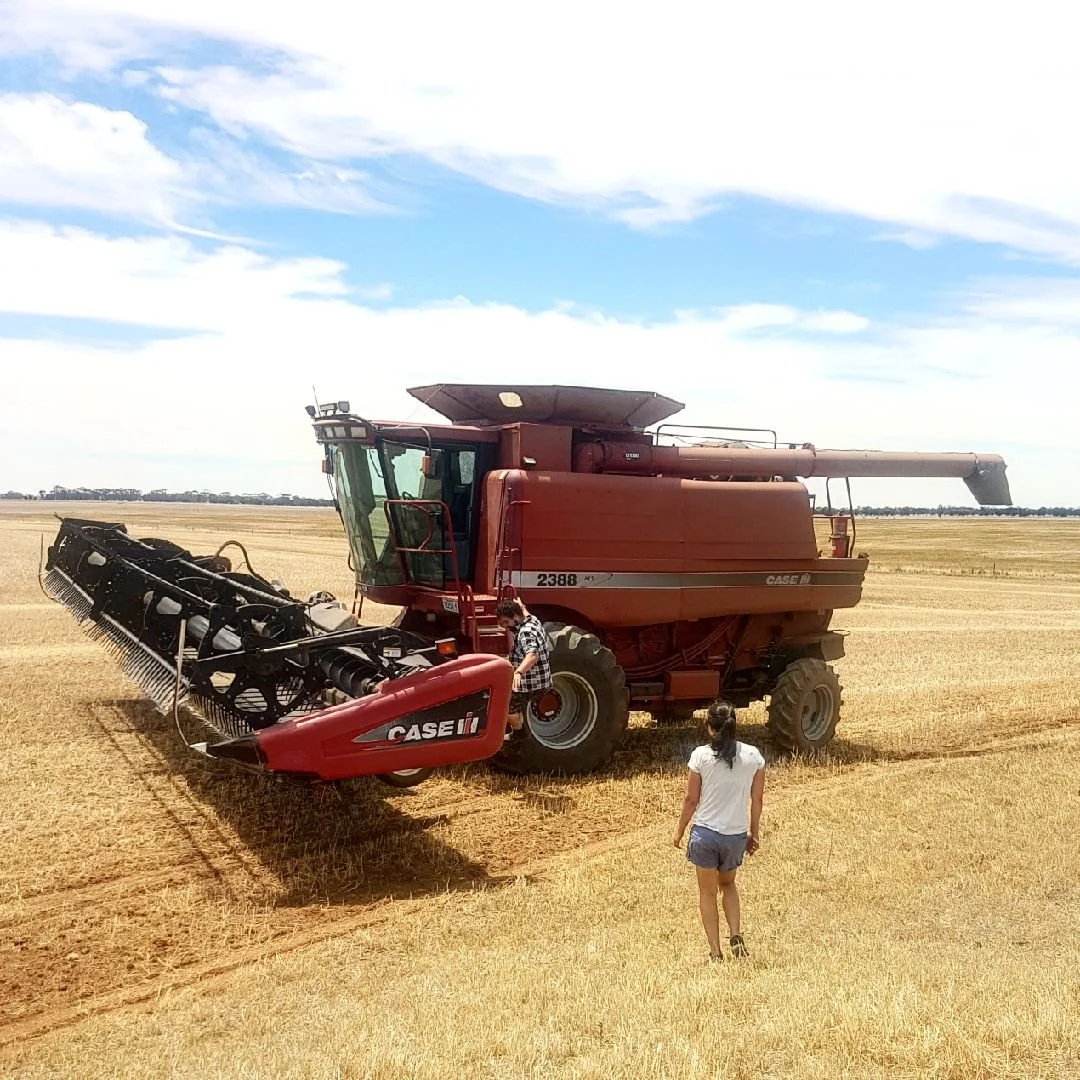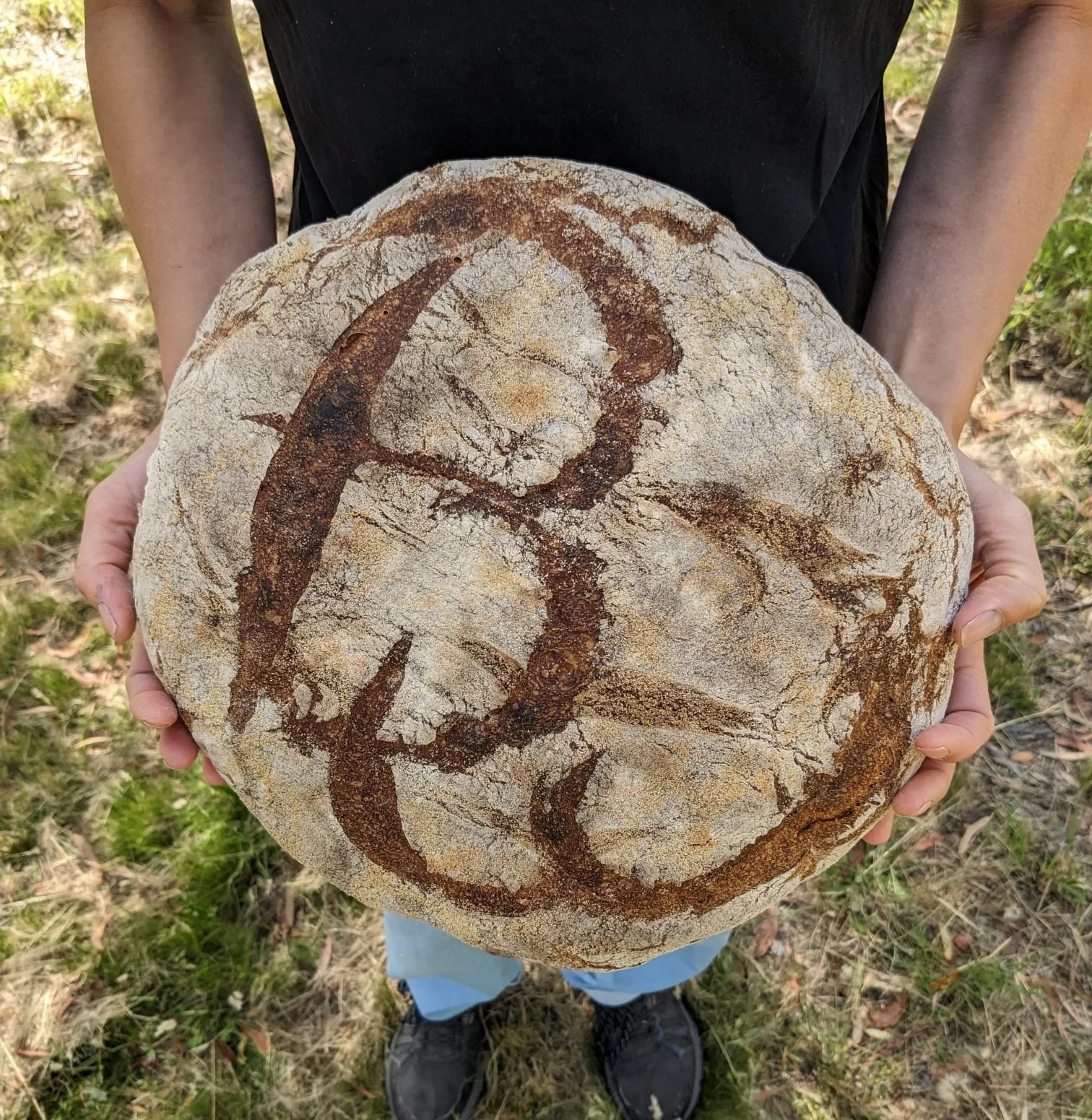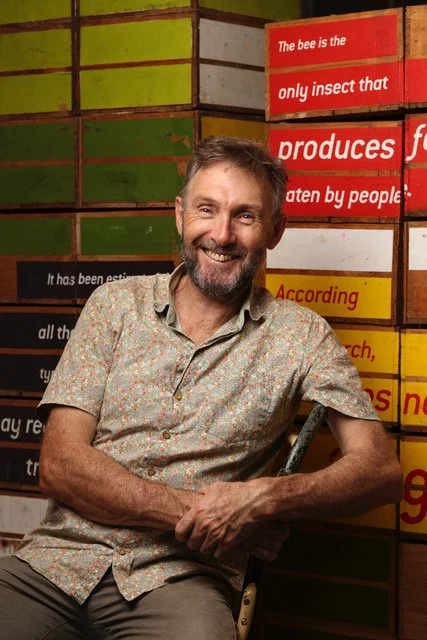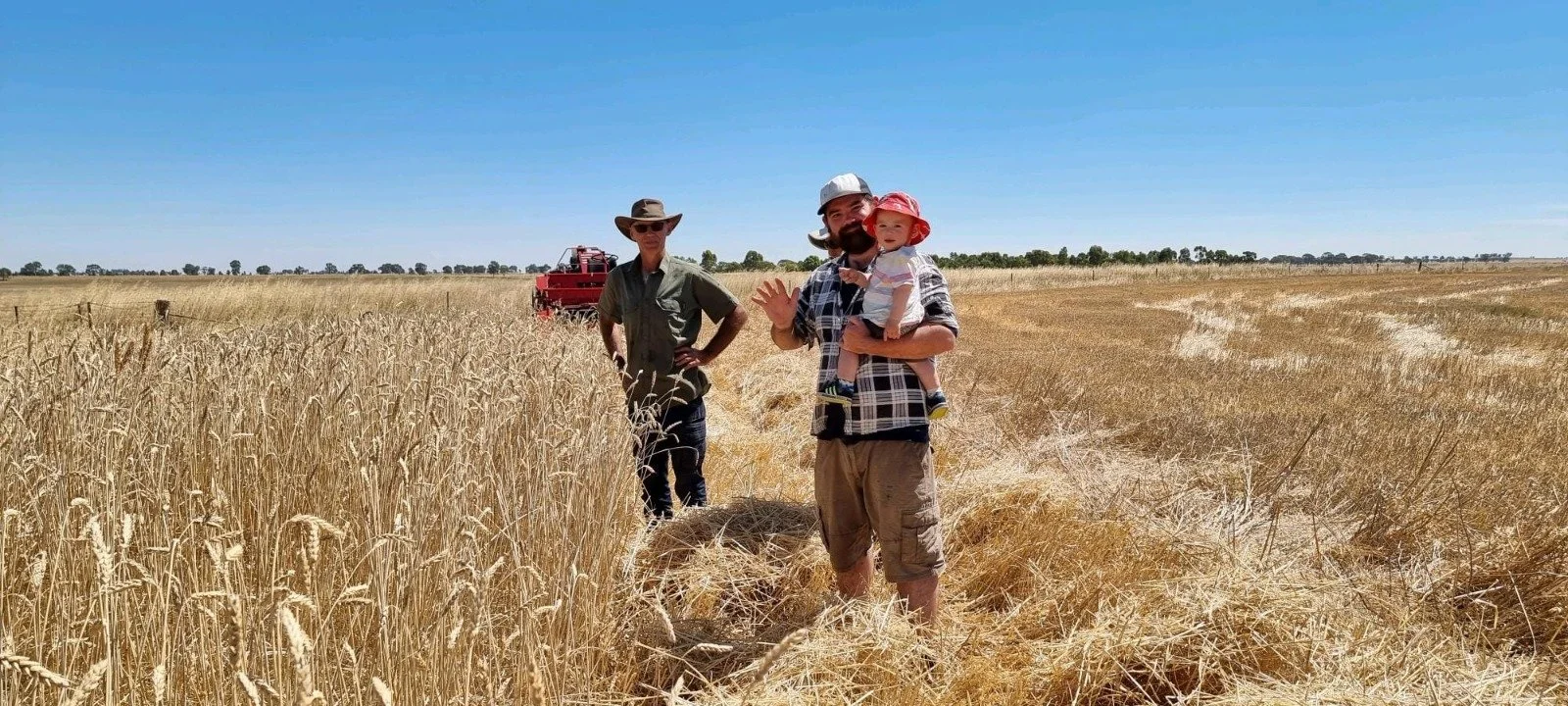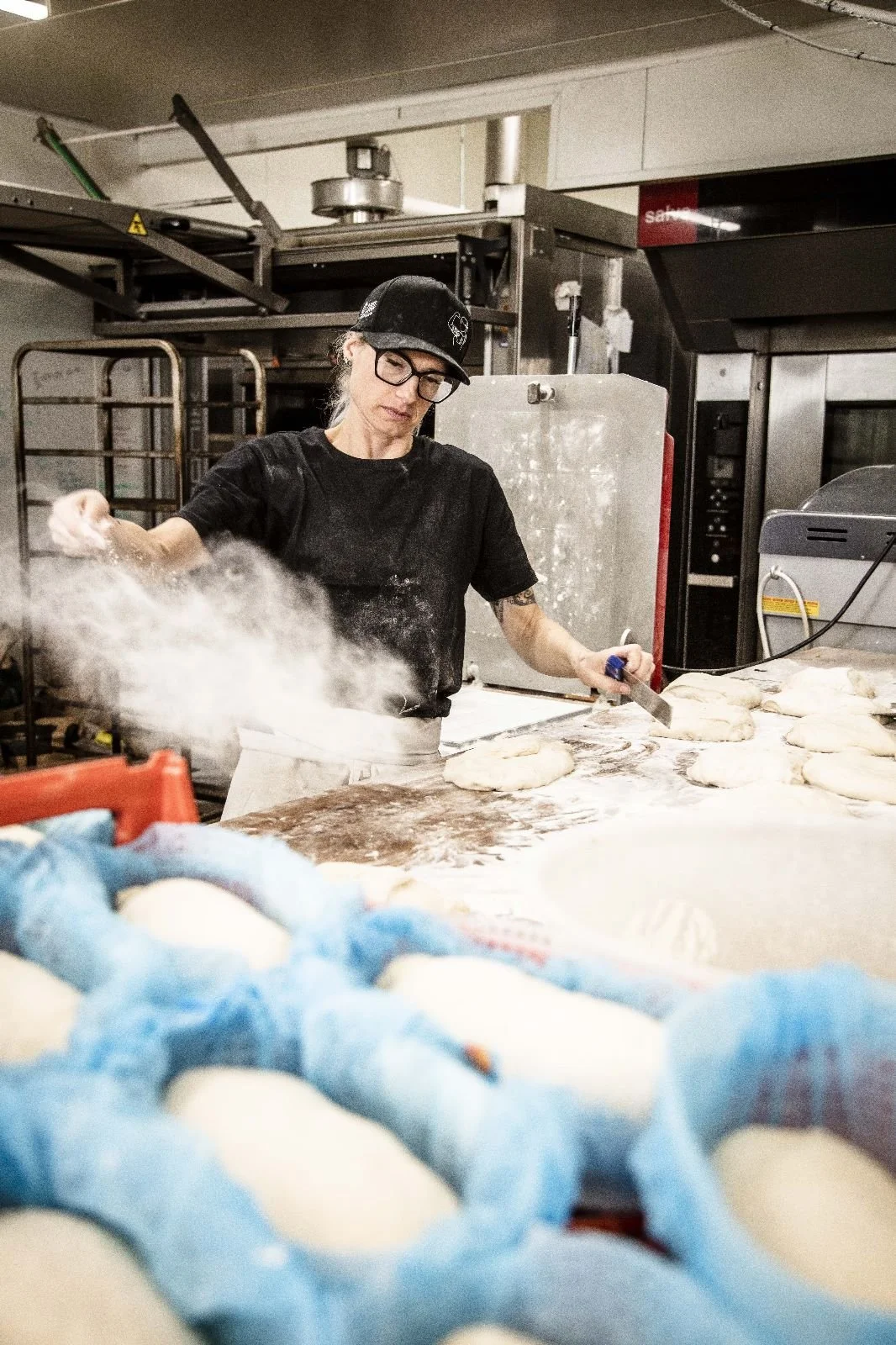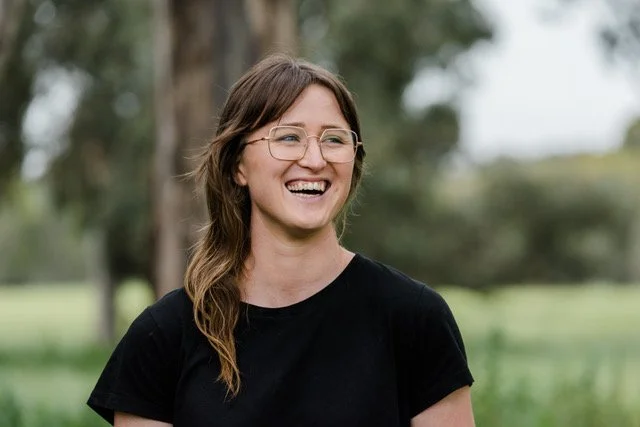Context for Pomonal GRAINZ 2025
We are gathering on the lands of the peoples represented by the Barengi Gadjin Land Council Aboriginal Corporation, Eastern Maar Aboriginal Corporation and Gunditj Mirring Traditional Owners Aboriginal Corporation.
This beautiful region has been a productive landscape for agriculture and food for many thousands of years under the careful custodianship of these Peoples. We acknowledge the Indigenous knowledges that guide and shape these landscapes and celebrate these knowledges as an essential form of culture and science.
We feel grateful to be situated here on this Country and pay our respects to Elders and knowledge holders of members of these Peoples.
Colonisation continues to affect the connection and management of Country to these Peoples. We acknowledge this impact and ongoing access to Country and hope that you will join the Grainz organisers in forming a welcome, kind and open space to learn from and interact with First Nations Peoples.
Fire has long been used as a landscape management tool by indigenous Peoples who passed these knowledges along generations. In using controlled, directional fires to shape landscapes, aid hunting, stimulate and refresh vegetative growth the occurrence of devastating fire events which leave profound destruction behind has been historically minimised.
As soon as colonial farmers and urban developers began clearing and changing the Australian landscape the impact of bushfires has been profound on ecosystems, human society and climate. Wild fire events have been more intense, more widespread and more difficult to bring under control due to the effects of increased fuel load (broadacre cropping with few cool, green breaks in the landscape, intermittent fuel reduction practices), decreased controlled cool burns, higher overall daily temperatures and longer periods of no rain due to climate change. Whether fires start from lightning, a cigarette thrown from a car, the sparks emitted by machinery on a hot windy day or are deliberately lit we are all impacted.
Our immediate challenges are in providing support to each other, accessing funding, rebuilding and replacing and rehousing for humans and animals. Our long term challenges are in addressing the effects of human disturbance on landscapes, looking to the power and possibilities of Indigenous ecological expertise and acting in unprecedented ways together to mitigate future destruction.
The most recent fires in the Grampians Gariwerd region started by lightning in December 2024 and spread rapidly into the Southern area of Grampians Gariwerd National Park before additional lightning strikes in the Western area ignited more fires a month later. Concerted efforts by local teams of firefighters on the ground and aerial water bombing prevented Halls Gap from attack but the smaller township of Pomonal lost 40 homes. More than 135,000 hectares was burnt in unprecedented conditions at an unprecedented rate.
Perhaps the momentum of these fires and the combined impacts they had can be viewed as an analogy for the rate of climate change and impacts in the Anthropocene. Clearly we need to respond at our district level in modes of prevention, mutual care and ingenuity to mitigate the impacts of the climate change that humans have caused.
In the immediate aftermath Government assistance was inadequate and difficult to access, with offers of grants in $5000 packages going nowhere near covering costs - for instance in demolishing and removing burnt out dwellings which cost property owners $100,000. Energy companies offered no relief from lost energy supply and the scheduled bills came in regardless.
Community set up a GoFundMe to bridge the funding gaps as best they could. Financial assistance was arranged to help residents reinstall water metres, make planning applications to Council for rebuilds, pay contractors or purchase equipment for the monumental task of removing rubbish and delivering building materials. A community board was set up with the two categories: I Have… and I Need… - a beautifully effective and concise connecting device for locals to help each other out. Facebook groups posted lists and offers of materials and services, morning tea catchups and a Hub was ongoing at the Pomonal Hall offering a central place for donations and pickups of essentials including food.
Council used all available funds to clean up debris and organise contractors, cleanup days, the stationing of an aid officer at the Hall to whom residents could go to ask about anything. Blaze Aid attended the region for an extended period replacing lost fencing and groups from other regions arrived to clear fallen timber, make the area safe and assist with the categorisation and allocation of donations.
Parks Victoria began work immediately on biodiversity recovery and protection programs alongside Barenji Gadjin Land Council, Eastern Maar Aboriginal Corporation and the Guditj Mirring Aboriginal Corporation who implemented strategic fire management to protect key cultural sites. The parks have slowly opened up as damaged areas were made safe for visitors and delicate bio-cultural areas could be protected.
The thing about operating a small business in a small community is one’s roots run deep. Blue Wren Bakery has been integral to rebuilding a singed and hurt community by providing delicious baked goods and also by intentionally procuring local ingredients from friends and colleagues who have not only been affected but are also doing their bit to rebuild. It’s only a brief moment into a chat with Nick Shelley and Jackie Lazarus that a reference to another valued member of their local circle is made and the small but profound things everyone does to shore up a resilient region. Checking in on each other, practicing reciprocity and sharing a genuine hospitality is the hallmark of the Pomonal community that reaches out into the Grampians and Wimmera region.
Such disasters have localised impact but also further out those suppliers from nearby regions are affected through diminished economic capacity in the fireground for some time. The partnership between Blue Wren Bakery and Burrum Biodynamics has enabled both businesses to continue to produce quality grain products and to shift focus as needed with the changing economic landscape in the region. We are lucky to have this opportunity to taste the wonderful products from their labours on site! We thank Blue Wren Bakery and Steve and Tania Walter of Burrum Biodynamics for their generous hospitality and giving their time to us so we can expand our learnings and imaginations for our own combined futures!
Your questions answered
-
Your ticket gives you access to all sessions - smaller group sessions will be run throughout the afternoon on Day 1 so you can get to everything.
Breakfast and lunch on both days.
Dinner on Monday night. Local drinks can be purchased at the bar operated by Grampians Wine Cellar.
-
You will need to organise transport or carpooling to the event and between locations.
Day 1 will be entirely in Pomonal, with a short walk between Pomonal Village Hall and Blue Wren Bakery.
Day 2 will involve a drive from Pomonal to Marnoo (50 minutes) and then to Murtoa (30 minutes).
If you need help coordinating a lift, or you’re happy to take someone in your car, please reach out and we will do what we can to assist.
-
No! Tickets are available for all of Day 1, all of Day 2 or for both days.
-
Concession tickets cover the cost of running the event. General admission tickets cover costs plus a little extra that goes into a Grainz future fund so we can continue creating events into the future.
-
Nearby Hall’s Gap has a multitude of great accommodation options, and there is free and cheap camping nearby too. Try these locally owned and operated options.
-

